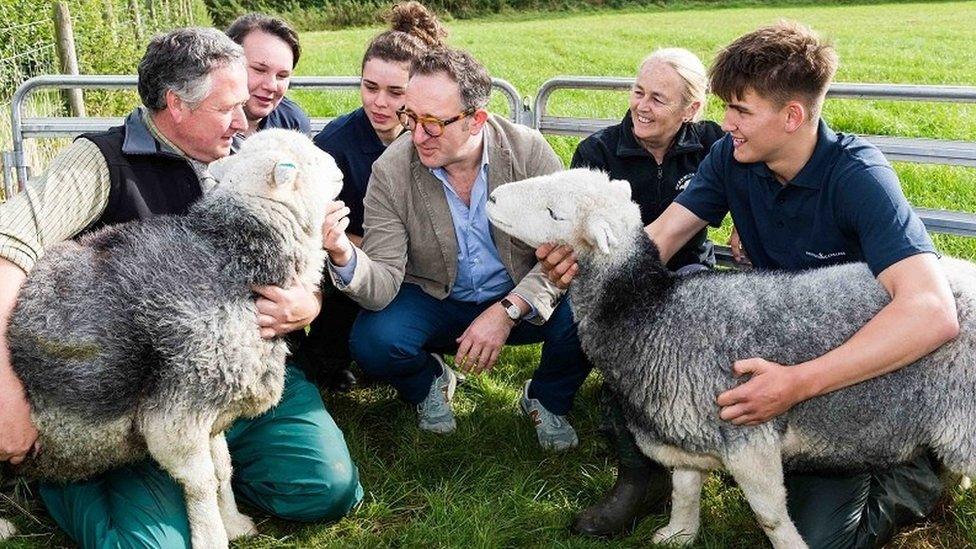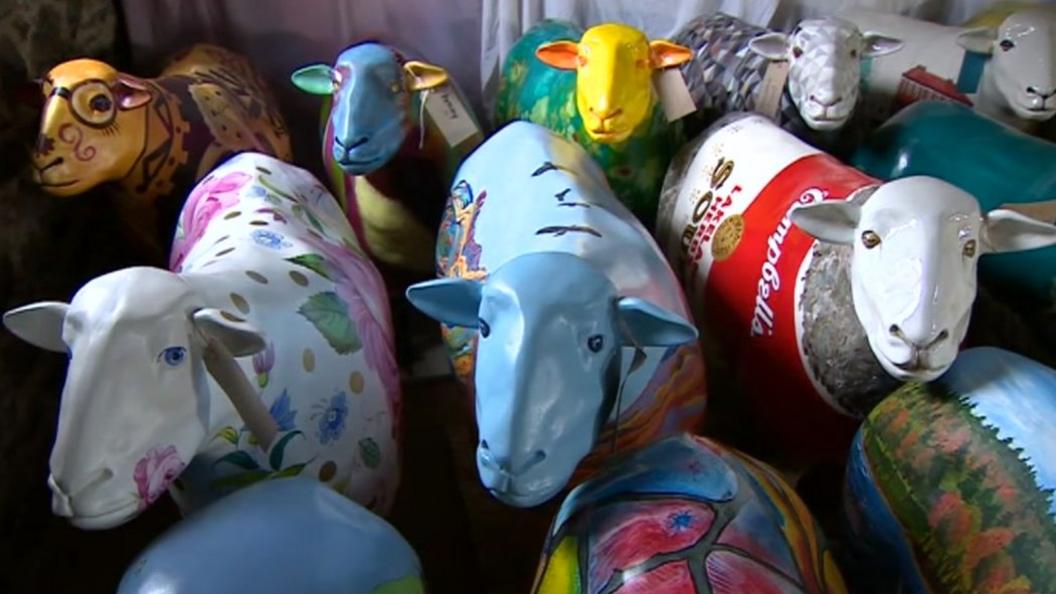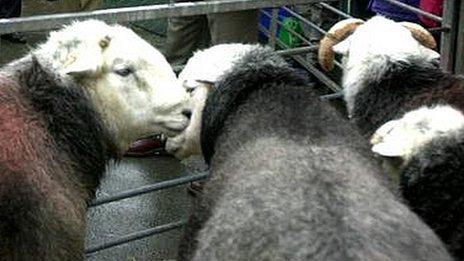Gene bank project to protect Herdwick sheep breed
- Published

The project is aimed at securing the future of the Herdwick breed
The future of the Herdwick sheep breed is being protected by students at a college in Cumbria.
The Herdwick's embryos are being frozen and stored in a gene bank, to secure the breed for many years to come.
The work is being carried out in part by agriculture students from Newton Rigg, near Penrith.
Matt Bagley, head of agriculture at Newton Rigg College, told BBC Radio Cumbria local farmers were very supportive.
He said: "The Herdwick, as much as any, is the Lake District. It's born, it's bred, it is only here that it thrives and does its best, and it would be an absolute tragedy to lose this heritage from the county."
Six pure bred ewes from fell farms across the county have been brought to Sewborwens Farm at Newton Rigg College where their embryos will be collected under a closely-monitored eight week programme.
The embryos will be frozen and stored in The Sheep Trust Heritage Gene Bank Archive along with fertilised eggs and semen.
Amanda Carson, secretary of the Herdwick Sheep Breeders' Association, said: "Our aim is to ensure the protection of the breed should a future catastrophe occur, such as foot and mouth, where numbers are either reduced or wiped out."
Herdwick numbers are currently not under threat - there are about 50,000 in the UK. The sheep will be returned to their farms at the end of the project.
- Published7 March 2016

- Published16 May 2013
